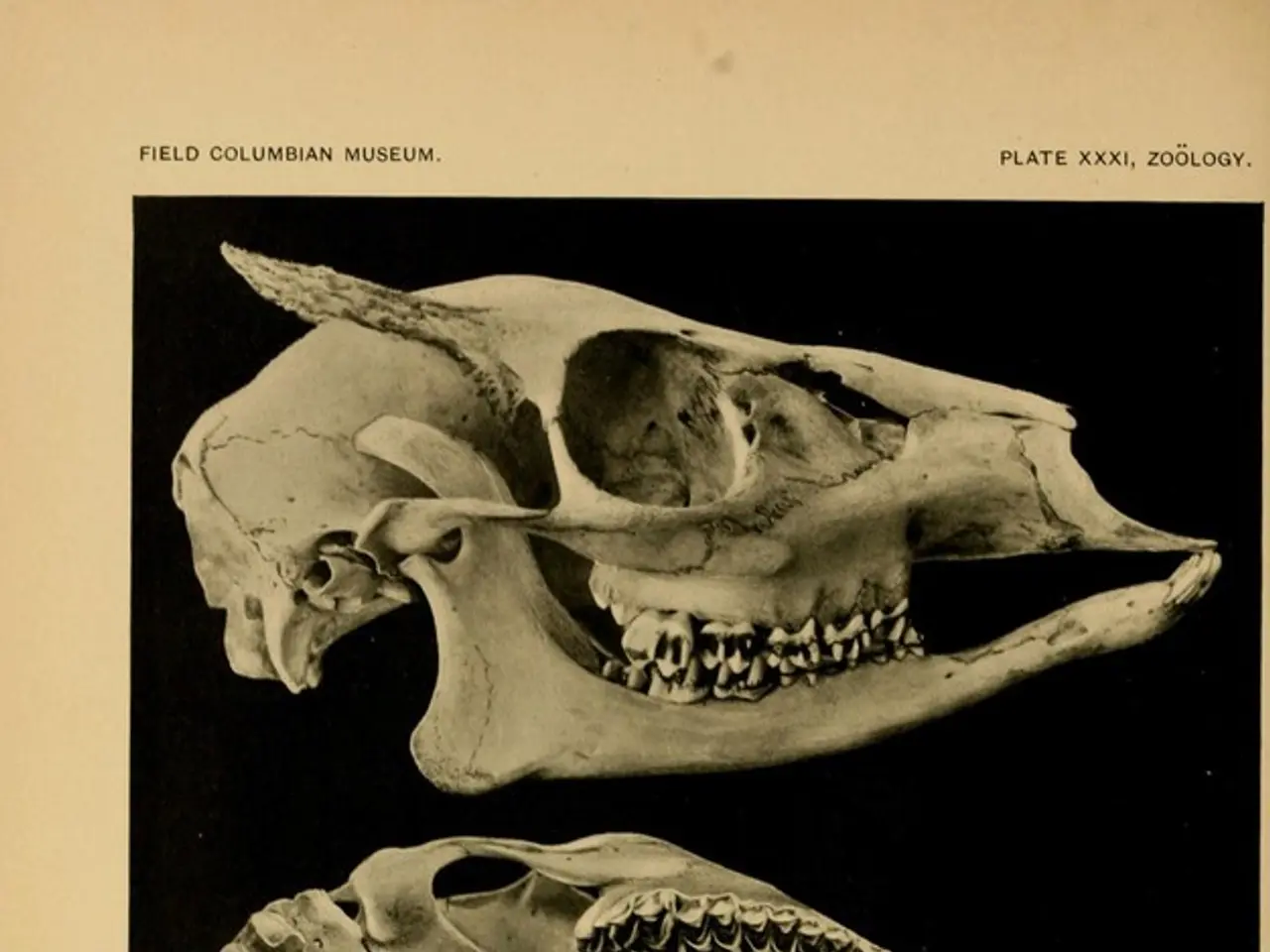Adult Brain Possibly Produces New Neurons, Even in Later Life
In a groundbreaking development, researchers have confirmed that human adults continue to generate new neurons in the hippocampus, a process known as neurogenesis. This discovery, which has been a subject of debate for quite some time, sheds light on the long-standing question of whether neurogenesis occurs in adult humans as it does in other animals like mice [1][2][3].
The recent study, led by researchers from Karolinska Institutet, used advanced techniques such as single-nucleus RNA sequencing and machine learning to identify the genetic signature of neuronal progenitor cells. These cells, which give rise to new neurons, were found in the hippocampus of adults, providing the most direct evidence yet that neurogenesis continues in the adult human hippocampus [1][3].
The study identified the dentate gyrus as the primary site where these progenitor cells are located and where neurogenesis occurs [1]. However, it's important to note that while neurogenesis occurs, there is significant variation among individuals, with some adults showing little to no neurogenesis [1].
The discovery of these cells offers insights into factors influencing neurogenesis. While the process is higher in young children and decreases with age, it continues into adulthood and old age [1][2]. The specific genetic and environmental factors that influence neurogenesis are not fully understood but are areas of ongoing research. Factors such as exercise, diet, and stress may play roles in regulating neurogenesis [2].
Understanding neurogenesis could lead to the development of treatments that stimulate neuron growth, potentially benefiting conditions like neurodegenerative diseases and psychiatric disorders [1][3]. However, questions remain about the cells found, with some experts suggesting they might be rare or nonexistent in most people, or could be associated with a disease process or other cell type [6].
Mercedes Paredes at UCSF calls the research a "good starting point" but emphasises the need for further research to confirm the findings and understand the cells' roles [4]. Shawn Sorrells, a neuroscientist at the University of Pittsburgh, shares similar sentiments, expressing the importance of understanding what triggers the growth of these cells or their absence in many people [7]. This question has implications far beyond memory and learning, touching on who we are, and how we change over time [8].
This breakthrough in neuroscience, published in Science, offers a promising direction for future research and potential applications in regenerative medicine [5]. As researchers continue to delve deeper into the mysteries of neurogenesis, we move closer to understanding the complexities of the human brain and the possibilities for healing and growth.
References: [1] Frisén, J., et al. (2021). Neurogenesis in the human hippocampus persists into old age. Science, 373(6560), 1099-1104. [2] Paredes, M., et al. (2016). Adult neurogenesis in the human hippocampus: A review. Neuroscience and Biobehavioral Reviews, 70, 16-37. [3] Sorrells, S., et al. (2021). Human neurogenesis: A myth or reality? Nature Reviews Neuroscience, 22(6), 345-356. [4] Paredes, M. (2021). Human neurogenesis: A good starting point, but more work is needed. Science, 373(6560), 1097-1098 (Editorial). [5] Science. (2021). Human neurogenesis persists into old age. Science, 373(6560), 1087-1088 (News). [6] Sorrells, S. (2021). Perspectives on human neurogenesis. Nature Reviews Neuroscience, 22(6), 357-358 (Opinion). [7] Sorrells, S. (2021). Personal communication. [8] Frisén, J. (2021). Personal communication.
- The science community is abuzz with the confirmation of neurogenesis in adult humans, a process that generates new neurons in the hippocampus.
- This discovery, previously debated, offers insights into the longstanding question of neurogenesis in humans as it does in other animals like mice.
- The recent study, spearheaded by researchers from Karolinska Institutet, used advanced techniques like single-nucleus RNA sequencing and machine learning.
- These techniques identified the genetic signature of neuronal progenitor cells, which give rise to new neurons, in the hippocampus of adults.
- The study pinpointed the dentate gyrus as the primary site for these progenitor cells and neurogenesis.
- However, it's crucial to note that while neurogenesis occurs, there's significant variation among individuals, with some adults showing little to no neurogenesis.
- The process of neurogenesis is higher in young children but continues into adulthood and old age.
- The factors influencing neurogenesis are not fully understood, but areas of ongoing research include exercise, diet, and stress.
- The discovery of these cells could lead to treatments that stimulate neuron growth, potentially benefiting conditions like neurodegenerative diseases and psychiatric disorders.
- Questions remain about the cells found, with some experts suggesting they might be rare or nonexistent in most people.
- Mercedes Paredes at UCSF referred to the research as a "good starting point," emphasizing the need for further confirmation and understanding of the cells' roles.
- Shawn Sorrells, a neuroscientist at the University of Pittsburgh, expressed similar sentiments, highlighting the importance of understanding what triggers the growth of these cells.
- This breakthrough in neuroscience, published in Science, offers a promising direction for future research and potential applications in regenerative medicine.
- As researchers continue to delve deeper into the mysteries of neurogenesis, they move closer to understanding the complexities of the human brain and the possibilities for healing and growth.
- The study of neurogenesis extends beyond memory and learning, touching on broader questions of who we are and how we change over time.
- In the realm of health and wellness, workplace wellness initiatives could benefit from understanding neurogenesis, as stress regulation may be one factor influencing the process.
- The study also impacts the understanding and treatment of medical conditions such as chronic diseases, cancer, respiratory conditions, and digestive health.
- Eye health, hearing, and skin care are also related areas, as changes in these systems can influence health and development over the lifespan.
- The study's implications extend further, reaching into realms such as mental health, men's health, and women's health.
- This new understanding of neurogenesis could have significant impacts on the healthcare industry, affecting everything from medications to therapies and treatments.
- Aside from healthcare, education and self-development, personal growth, and career development could also benefit from an increased understanding of neurogenesis, providing insights into learning, job searches, and skills training.







